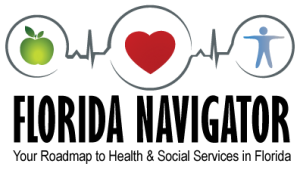Elder Abuse Month
By Robert Goodman, MSW
April is Elder Abuse month. Elder abuse and neglect are a major issue in Florida where so many seniors retire. Elder abuse comes in many forms: physical, psychological, financial, and sexual. Many older adults cannot take of themselves due to frailty or dementia and either self-neglect or are neglected or exploited by others.
The American Geriatric Society website describes research suggesting that 700,000 to 1.2 million elderly people (i.e., 6% of all adults older than 60) are subjected to elder mistreatment in the United States and that there are 450,000 new cases annually. The Florida Department of Elder Affairs investigated 41,019 reports of elder abuse and neglect during the 2008-2009 fiscal year. Of those reports 10% resulted in physical injury, 1% involved sexual abuse or substance abuse, 62% were a result of neglect, 18% involved exploitation of the elderly, and 8% involved mental injury.
You can help stop abuse and neglect of the elderly by understanding what abuse and neglect are and by learning the signs.
Physical abuse includes any physical contact with an older adult that results in a physical injury. Self-neglect is often indicated by a person’s inability to care for themselves. Neglect by others may result in malnutrition, dehydration, or a failure to get help or services for a frail older person. Psychological abuse is indicated when a person is being harassed, berated, put down, and made to feel bad about themselves. Financial exploitation involves the improper use of someone’s funds, property, or assets.
If you believe someone is being abused, neglected, exploited by someone else, neglecting themselves you have a legal obligation and moral responsibility to call the state abuse hotline: 1-800-96ABUSE or 1-800-962-2873 and report the situation. You can report anonymously.
Elder Abuse and Neglect Resource Contacts:
Elder Helpline
1-800-96ELDER
Fraud Hotline
1-800-378-0445
Statewide Senior Legal Helpline
1-888-895-7873
Consumer Services
800-435-7352
Financial Services
1-800-342-2762
National Fraud Information Center
1-800-876-7060
Resources on Elder Abuse and Neglect:
Foundation for Healthy Aging
www.healthyaging.org
National Institute of Health Medline
www.nlm.nih.gov/medlineplus/elderabuse.html
National Committee for the Prevention of Elder Abuse
www.preventelderabuse.org
National Center on Elder Abuse
www.ncea.aoa.gov


